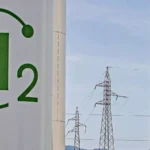Hospitality Sector Braces For Rs 7400 Cr Power Bill Amid Scorching Heat

Extreme heat is not just a comfort crisis, it is creating an energy cost crunch across India’s hospitality sector
As heatwaves scorch parts of India this summer, the country’s hospitality sector is grappling with another crisis, soaring electricity bills. A new report by Enlog estimates that power consumption across hotels, hostels and paying guest (PG) accommodations could reach 9.35 billion units during the summer months, nearly 10 per cent higher than last year.
The report found that, at an average tariff of Rs 8 per unit, this translates to a collective spend of over Rs 7,400 crore, a sharp increase from Rs 6,800 crore in 2024. For hotels, hostels, and paying guest accommodations, this surge is eating into operating margins and pushing many to reconsider their energy strategies.
What’s Driving The Energy Spike?
The report said that the answer, unsurprisingly, lies in the heat. Temperatures are climbing toward the 50°C mark in several regions, and cooling systems are working overtime to keep guests comfortable. According to Enlog’s data, the demand for air conditioners and coolers was already 25-30 per cent higher in February and March this year compared to the same months in 2024.
India’s overall electricity demand is expected to peak at 273 GW in June 2025, highlighting the mounting pressure on power systems across sectors. Within the hospitality industry, metro cities are driving a significant share of this surge. Delhi leads the pack, accounting for 25 – 30 per cent of hotel electricity consumption, followed by Hyderabad at 20 – 25 per cent. Mumbai contributes 15 – 20 per cent, with its high humidity levels intensifying the need for cooling. Bangalore, owing to its relatively moderate climate, records a lower share at 10 – 15 per cent.
Together, these cities reflect a sharp northward trend in energy consumption, especially for services like cooling, refrigeration, and water heating.
How Much Are Hotels Spending?
The spike in consumption is translating directly to soaring electricity bills. A mid-sized 30-room hotel in a high-tariff city like Delhi or Mumbai could be looking at Rs 1.5 to 3 lakh per month, while a 50-room property might pay Rs 2.5 to 5 lakh per month during the peak summer stretch.
These figures exclude additional costs like fuel for diesel generators, which many properties rely on due to erratic grid supply. According to Enlog, backup generator use can add Rs 50,000 to Rs 1 lakh to monthly operational expenses.
The impact does not stop at hostels. PGs and hostels – especially those in dense urban clusters like Delhi NCR – are also feeling the heat. The report found that many are paying Rs 30,000 to Rs 50,000 more each month for electricity. Generator fuel costs, typically between Rs 10,000 – Rs 20,000, pile on top of that.
For such properties, unreliable power supply does not just affect the bottom line – it affects customer satisfaction. “Frequent outages and poor cooling can lead to tenant complaints, bad reviews, and even loss of residents to better-managed buildings,” notes the report.
Is There A Way Out?
For the hospitality industry, tackling this challenge means rethinking energy consumption holistically. Many players are exploring smart thermostats and occupancy sensors to optimise air conditioning usage, while others are investing in solar rooftops and battery storage to reduce their reliance on the grid. Upgrading to energy-efficient appliances – particularly ACs and refrigeration systems – is also gaining traction, alongside partnerships with energy management firms to cut wastage and enable real-time monitoring of electricity usage.
Additionally, the report finds solutions in AI-driven mechanisms. Bharath Rnkawat, Founder and CEO, Enlog, explaining the report, said that AI will play a pivotal role in addressing energy volatility caused by geopolitical dynamics, extreme weather, and the transition to renewables. Today, AI enables demand response, allowing buildings to reduce non-essential loads during grid stress. In countries like Japan, AI-driven systems stabilise energy use automatically. As regulations and volatility increase, AI will evolve from reactive to predictive: modelling future energy demand patterns, integrating renewables like rooftop solar, and offering recommendations to reduce exposure to supply shocks. This ensures better cost control, operational continuity, and long-term sustainability.
“AI-driven platforms today go far beyond just controlling energy. They help optimise water usage by detecting leaks and inefficient fixtures, track and reduce food waste in kitchens through demand forecasting, and even sustainable guest experience, from automated blinds. Through Enlog and similar solutions, AI-powered reporting provides hotels with verified data to support ESG compliance and achieve certifications such as Leed, Griha, or ISO 50001,” said Rnkawat.
The Enlog report underscores the importance of proactive planning. As climate change pushes temperatures higher each year, energy efficiency is no longer a sustainability buzzword, it is a business imperative.





































































































































































































































































































































































































































































































































































































































































































































































































































































































































































































































































































































































































